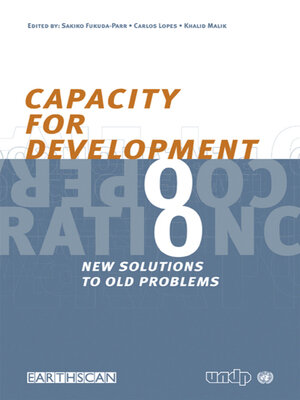
Sign up to save your library
With an OverDrive account, you can save your favorite libraries for at-a-glance information about availability. Find out more about OverDrive accounts.
Find this title in Libby, the library reading app by OverDrive.



Search for a digital library with this title
Title found at these libraries:
| Library Name | Distance |
|---|---|
| Loading... |
'The United Nations system was a pioneer in the field of technical cooperation, and capacity development is its central mandate. UNDP has long played an important leadership role in both, as a source of technical cooperation funds and advisory services and as the home of innovative intellectual research and analysis on how to make them more efficient and effective. This book [presents] a vision that builds on new possibilities for knowledge-sharing, for which the revolution in information and communications technologies offers ample opportunities... a vision that is firmly founded on genuine ownership by the ultimate beneficiaries of development efforts: the government and citizens of developing countries'
From the Foreword by MARK MALLOCH BROWN, Administrator, UNDP
Capacity for Development brings together innovative and well-supported studies of technical cooperation along with its potential to build sustainable capacities in developing countries, by enhancing the knowledge, skills and productive aptitudes of their populations.
A team of eminent development professionals and economists examine the achievements of technical cooperation and offer recommendations for reform in the context of globalization, democratisation, the information revolution and the growth of capacities in the South. They analyse the issues from three perspectives: ownership, capacity enablers and knowledge. The team show how the complex processes involved can be restructured to produce local involvement and empowerment, set out a normative framework for the input from society, and describe a new paradigm of knowledge for capacity building in the network age.
This book will be essential reading for all development professionals and policy-makers, as well as providing an invaluable research and teaching resource.







